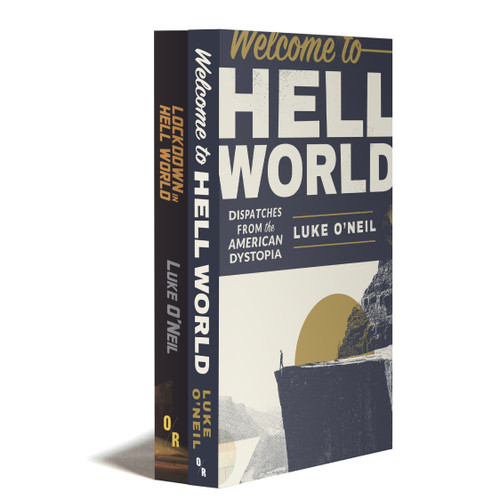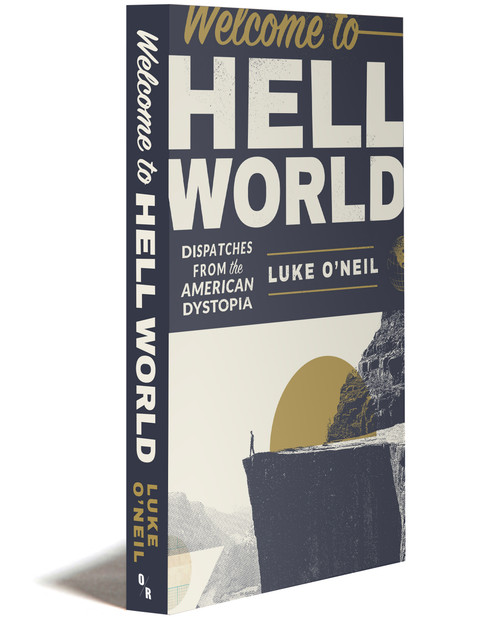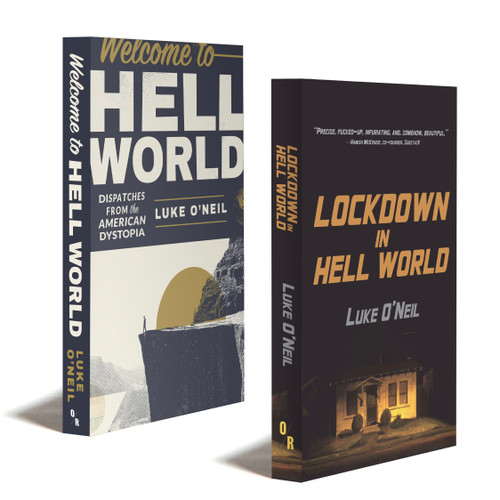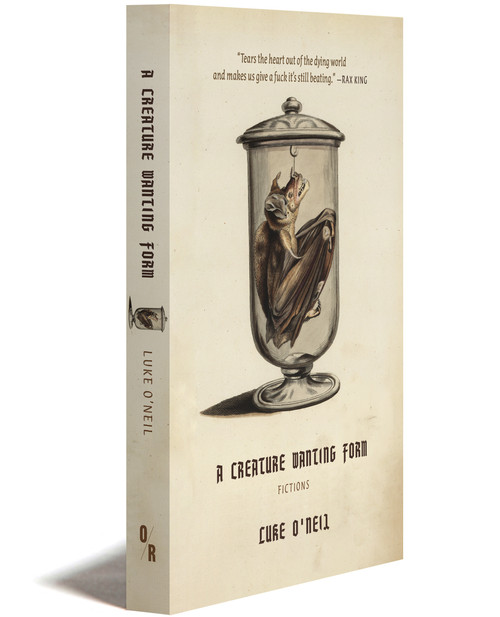Luke O'Neil's Hell World Bundle
about the bookabout
Welcome to Hell World: Dispatches from the American Dystopia
When Luke O’Neil isn't angry, he's asleep. When he's awake, he gives vent to some of the most heartfelt, political and anger-fueled prose to power its way to the public sphere since Hunter S. Thompson smashed a typewriter's keys.
Welcome to Hell World is an unexpurgated selection of Luke O’Neil’s finest rants, near-poetic rhapsodies, and investigatory journalism. Racism, sexism, immigration, unemployment, Marcus Aurelius, opioid addiction, Iraq: all are processed through the O’Neil grinder. He details failings in his own life and in those he observes around him: and the result is a book that is at once intensely confessional and an energetic, unforgettable condemnation of American mores.
Welcome to Hell World is, in the author's words, a "fever dream nightmare of reporting and personal essays from one of the lowest periods in our country in recent memory". It is also a burning example of some of the best writing you’re likely to read anywhere.
Lockdown in Hell World
Foreshadowing a subsequent exodus, Luke O'Neil and his wife moved from the city to the suburbs just prior to the lockdown. Isolated not only by a virus but also by the alienation of a neighborhood where social distancing meant more than just geographical separation, O'Neil faced trials on numerous fronts: How to avoid potentially lethal clashes with new Republican neighbors? How to continue a working life as one America's most electric, hard-hitting commentators without the opportunity of face-to-face reporting? How to maintain his own sanity, always a frail ship, while the world as we knew it disintegrated?
These pages chronicle that struggle. In turns furious, funny and philosophical they show a writer leavening his own feelings of helplessness by conversing with others experiencing the same discomfort - a postal worker, grocery store clerk, hotel receptionist, and people with kids stuck at home or Trump supporting family members. He talks, too, with a demonstrator whose eye was blinded by a police projectile on a Black Lives Matter protest.
Shifting back and forth across a summer lost to a virus and an economic system already deeply unjust and now profoundly dysfunctional, the sense of desperation that laces together O'Neil's taut rendering serves, paradoxically, to reassure: In battling to overcome the particular obstacles they face in the pandemic, working class people are in this together.
in the media
Luke O'Neil's Hell World Bundle
about the bookabout
Welcome to Hell World: Dispatches from the American Dystopia
When Luke O’Neil isn't angry, he's asleep. When he's awake, he gives vent to some of the most heartfelt, political and anger-fueled prose to power its way to the public sphere since Hunter S. Thompson smashed a typewriter's keys.
Welcome to Hell World is an unexpurgated selection of Luke O’Neil’s finest rants, near-poetic rhapsodies, and investigatory journalism. Racism, sexism, immigration, unemployment, Marcus Aurelius, opioid addiction, Iraq: all are processed through the O’Neil grinder. He details failings in his own life and in those he observes around him: and the result is a book that is at once intensely confessional and an energetic, unforgettable condemnation of American mores.
Welcome to Hell World is, in the author's words, a "fever dream nightmare of reporting and personal essays from one of the lowest periods in our country in recent memory". It is also a burning example of some of the best writing you’re likely to read anywhere.
Lockdown in Hell World
Foreshadowing a subsequent exodus, Luke O'Neil and his wife moved from the city to the suburbs just prior to the lockdown. Isolated not only by a virus but also by the alienation of a neighborhood where social distancing meant more than just geographical separation, O'Neil faced trials on numerous fronts: How to avoid potentially lethal clashes with new Republican neighbors? How to continue a working life as one America's most electric, hard-hitting commentators without the opportunity of face-to-face reporting? How to maintain his own sanity, always a frail ship, while the world as we knew it disintegrated?
These pages chronicle that struggle. In turns furious, funny and philosophical they show a writer leavening his own feelings of helplessness by conversing with others experiencing the same discomfort - a postal worker, grocery store clerk, hotel receptionist, and people with kids stuck at home or Trump supporting family members. He talks, too, with a demonstrator whose eye was blinded by a police projectile on a Black Lives Matter protest.
Shifting back and forth across a summer lost to a virus and an economic system already deeply unjust and now profoundly dysfunctional, the sense of desperation that laces together O'Neil's taut rendering serves, paradoxically, to reassure: In battling to overcome the particular obstacles they face in the pandemic, working class people are in this together.










